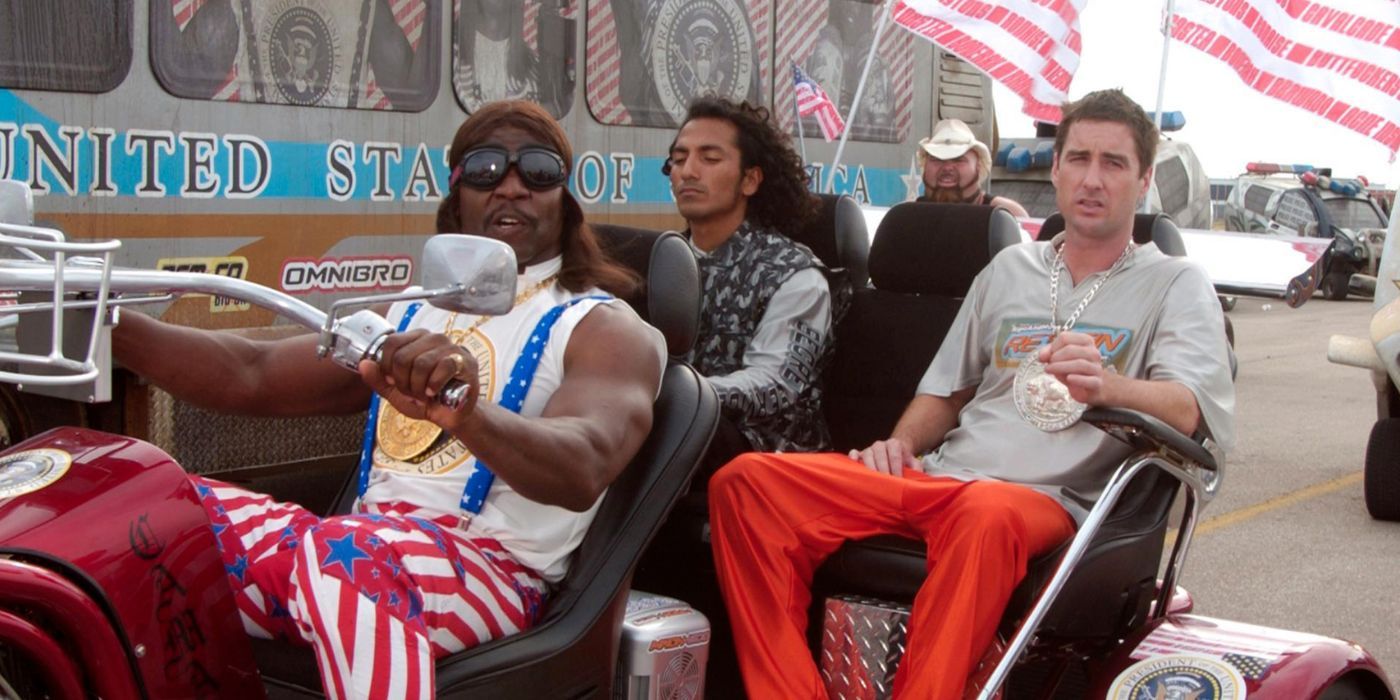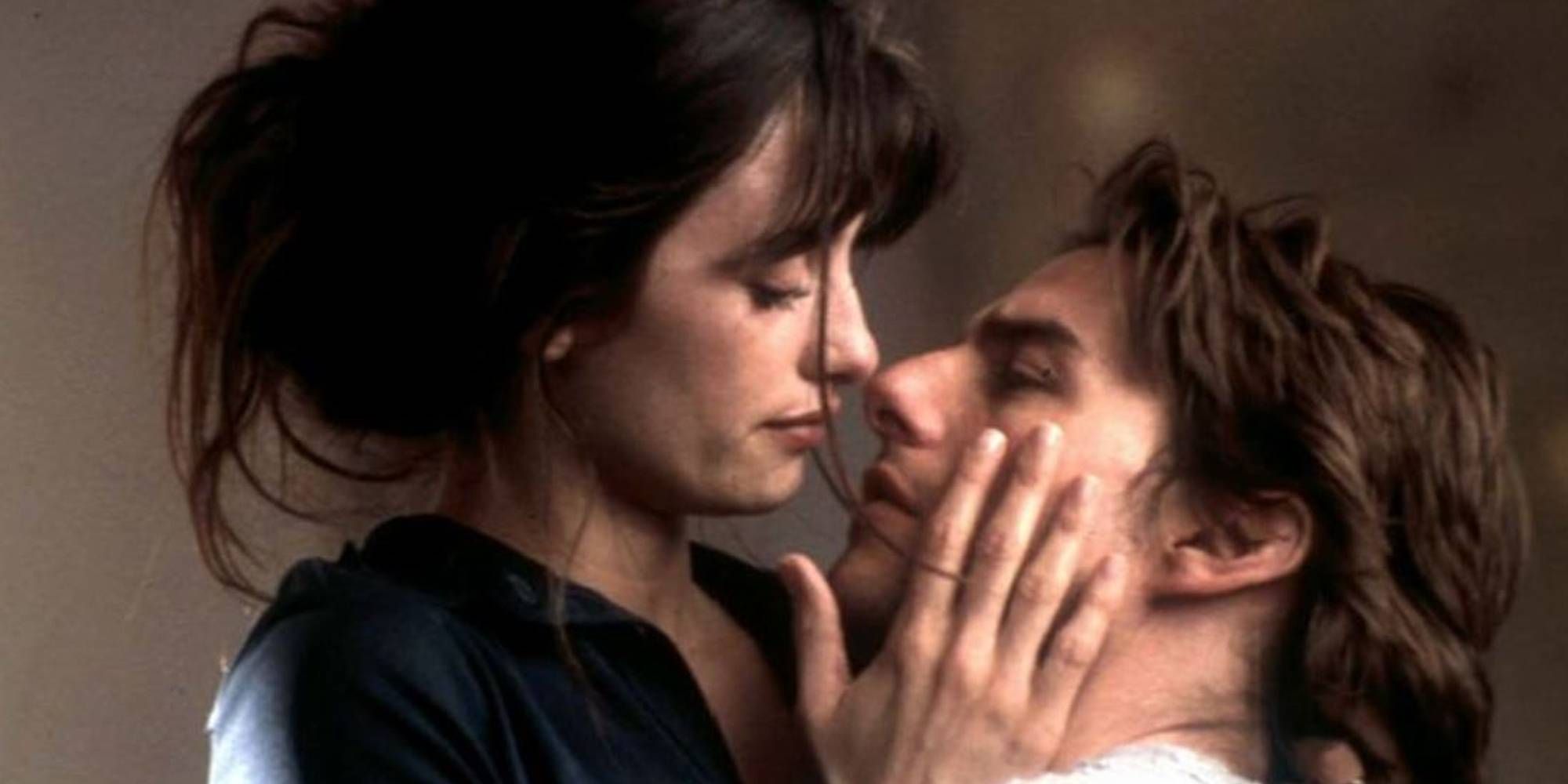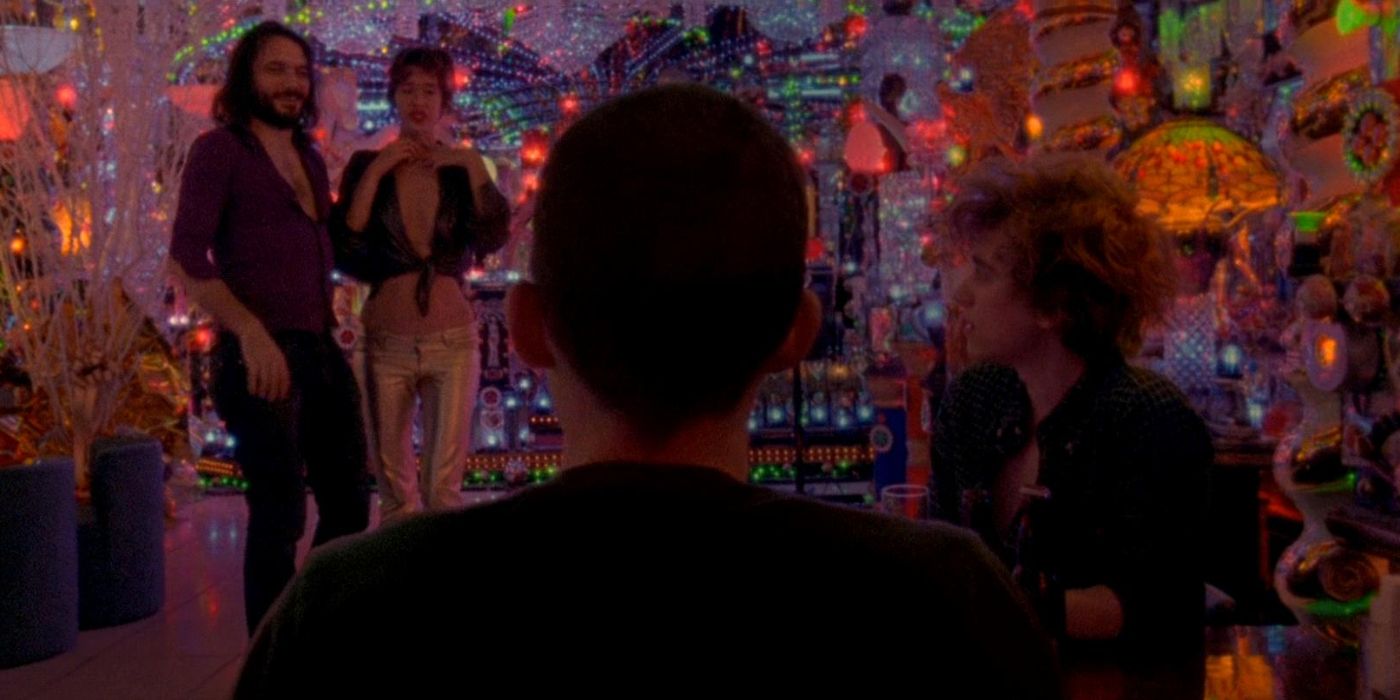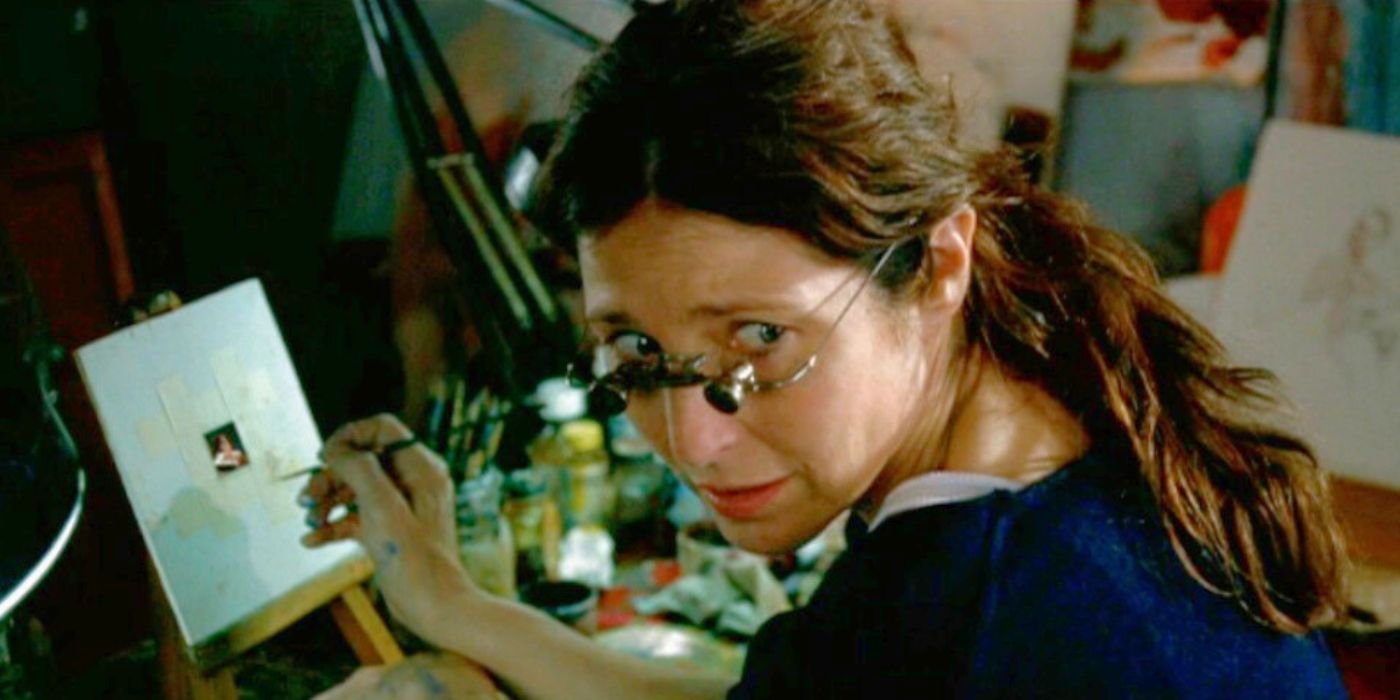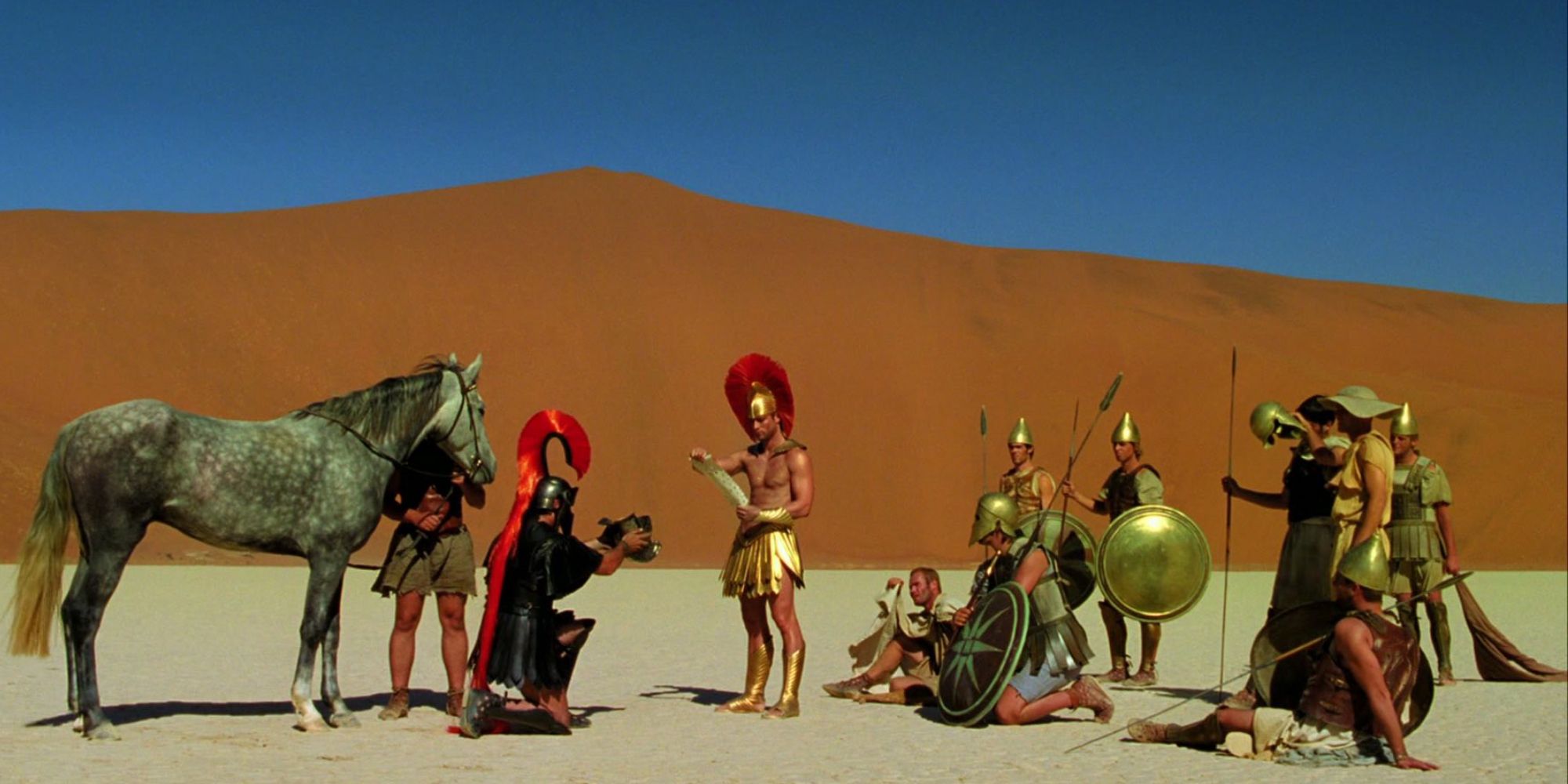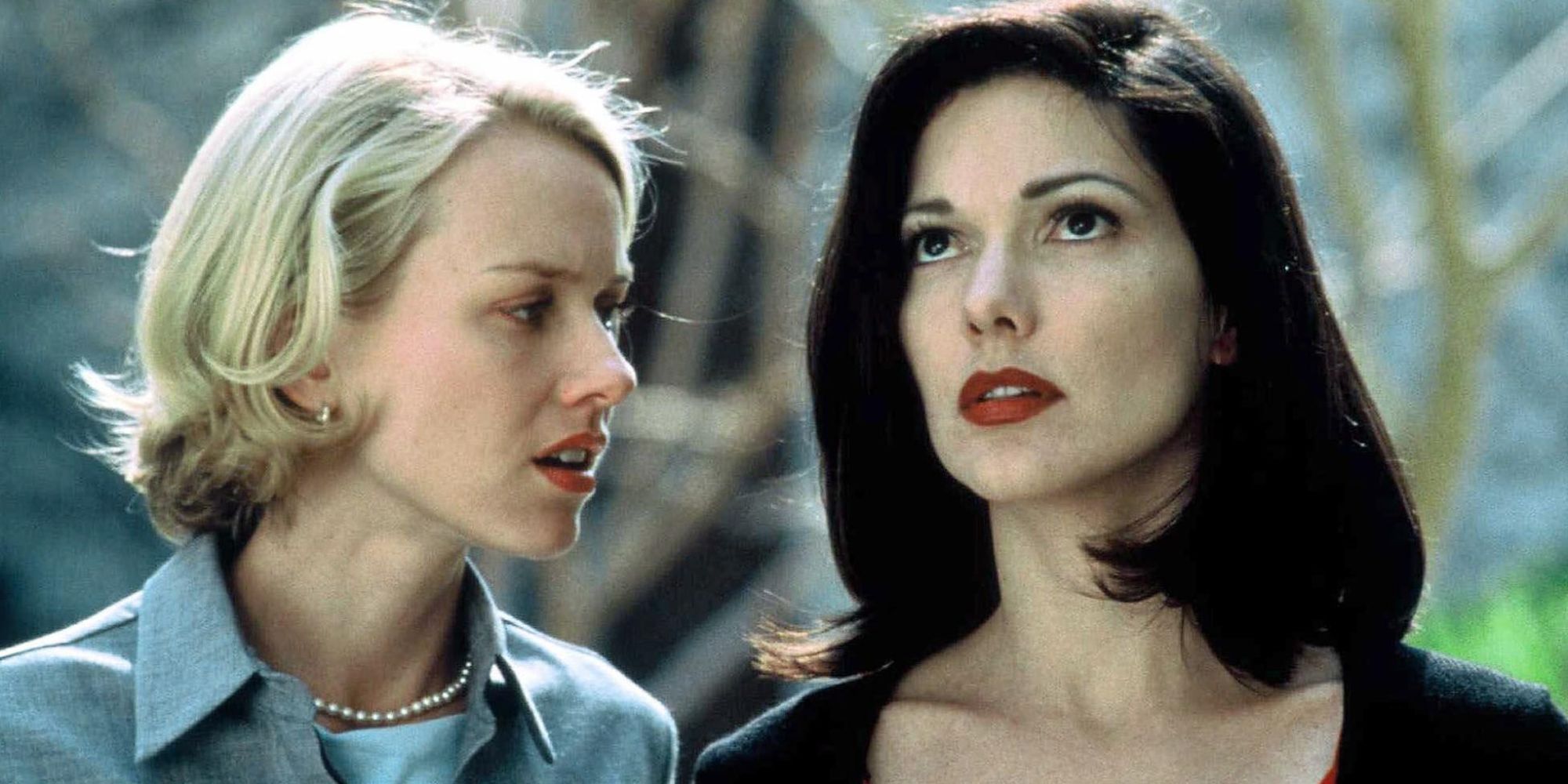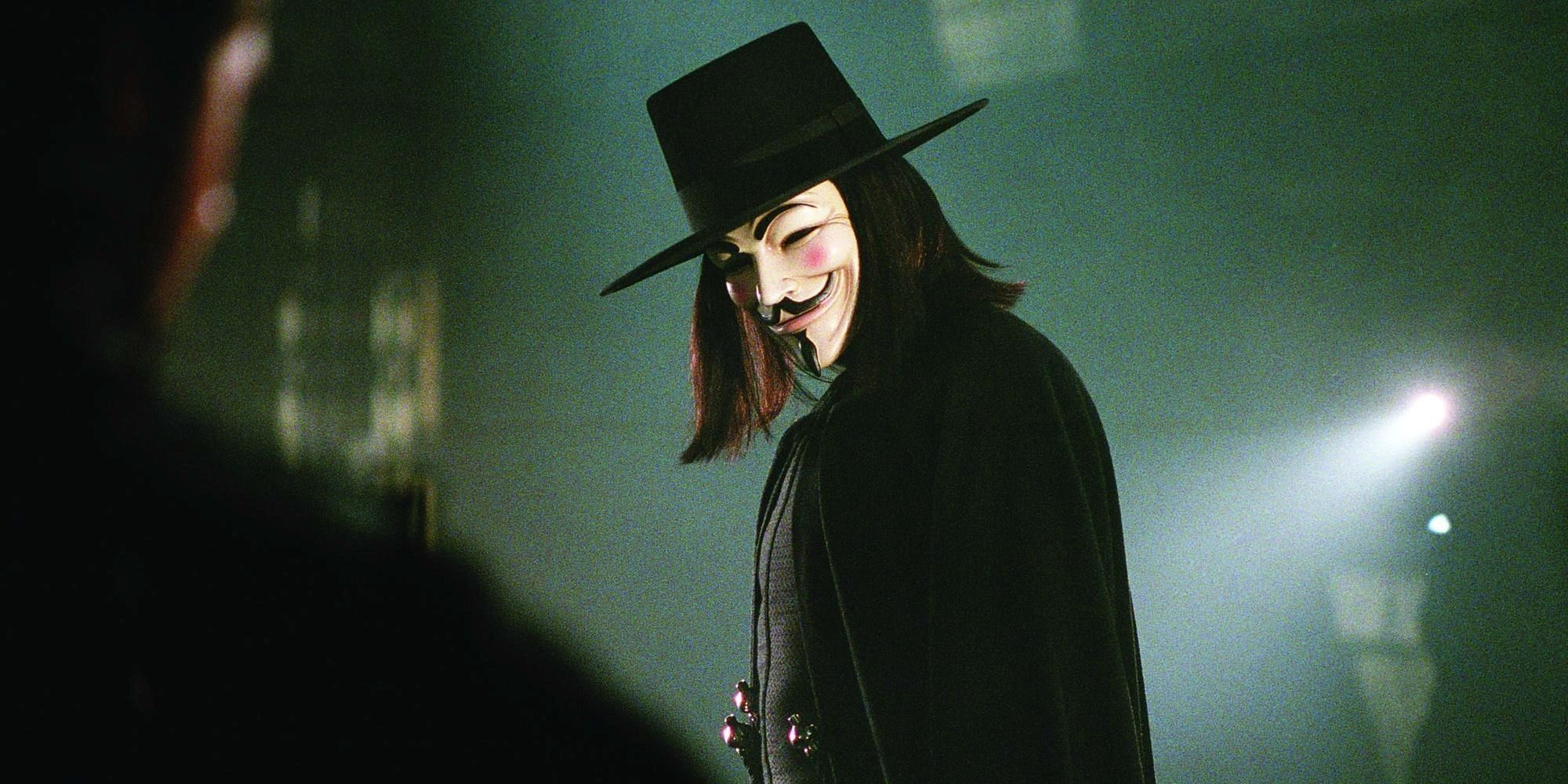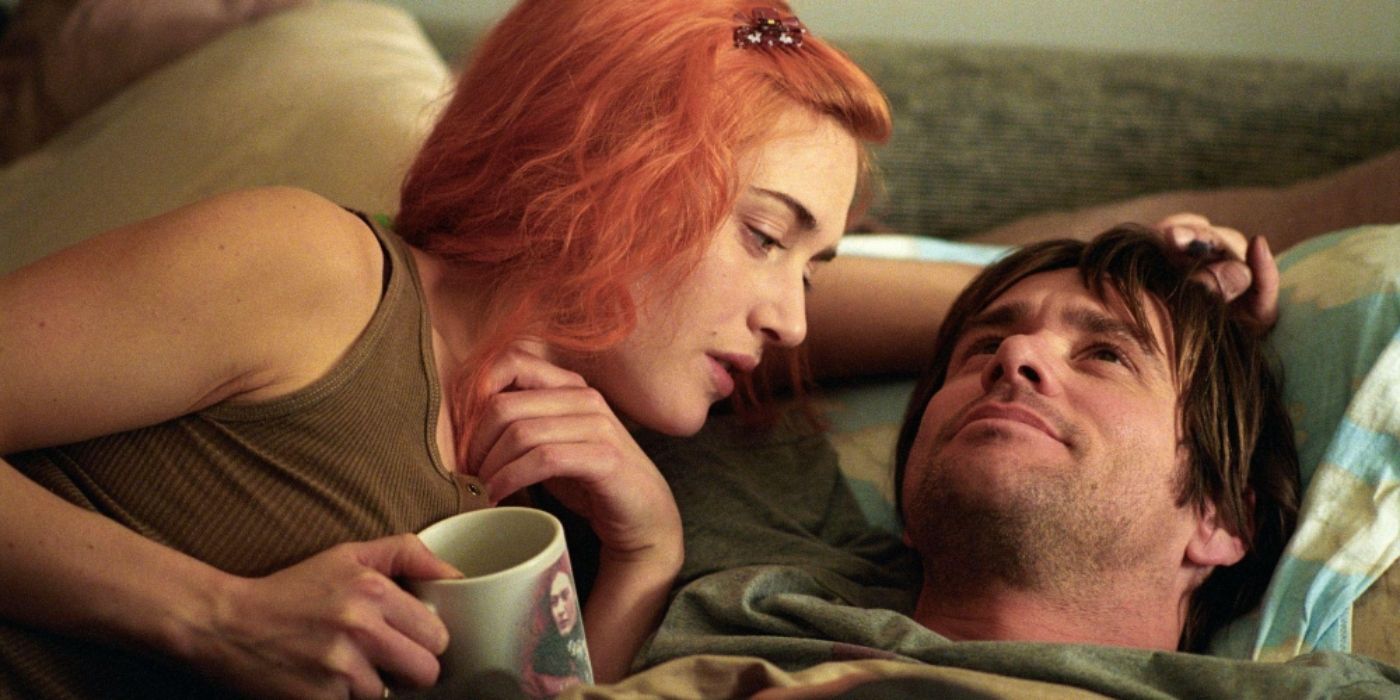[ad_1]
Some of the most interesting movies walk a fine line between genres, taking aspects of one and fusing them with another. For example, some films contain elements of sci-fi without committing fully to the genre. They might feature futuristic elements, alternate realities, or dystopian themes, yet they remain grounded in a world that feels eerily similar to our own. Often, they use their genre concepts to explore existential questions, social issues, or psychological struggles.
In other words, these films use the language of sci-fi without relying on the genre’s most distinctive tools, including advanced technology, alien life forms, or other hallmarks of the genre. With this in mind, this list looks at the movies that do it best, from dystopian social commentaries to mind-bending explorations of memory and identity. They relegate the science-fiction to the background, focusing instead on other themes or types of stories.
10 ‘Idiocracy’ (2006)
Directed by Mike Judge
“I like money.” In Idiocracy, everyman Joe Bauer (Luke Wilson) is selected for a government hibernation experiment that accidentally leaves him frozen for 500 years. When he finally awakens, Joe finds himself in a future where humanity’s intellect has plummeted to shocking lows: crops are watered with energy drinks, and the president is a pro wrestler.
Although the premise is ripped from sci-fi and the setting is the distant future, Idiocracy is very much an absurdist comedy. The satire may be heavy-handed, but it’s hard-hitting, poking fun at the present, particularly its rampant consumerism and unseriousness. The humor is absurd and enjoyable, with the gags and silliness taking center stage over the science-fiction elements. Many have since pointed out that Idiocracy was prophetic, with contemporary politics occasionally looking uncomfortably close to what the movie depicts. For this reason, despite being a box office disappointment, Idiocracy has become a cult film.
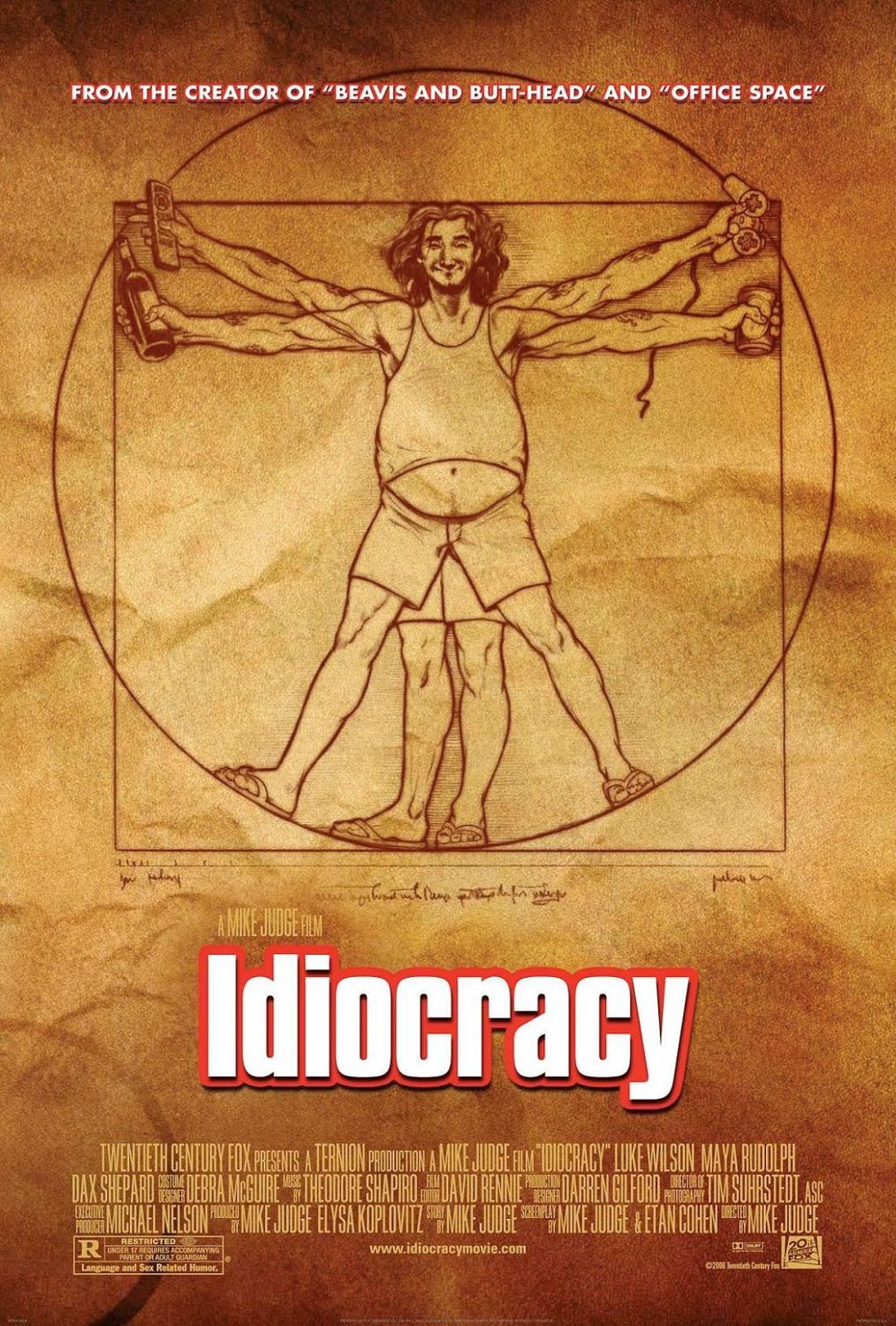
Idiocracy
- Release Date
- September 1, 2006
- Runtime
- 84 minutes
- Writers
- Mike Judge , Etan Cohen
9 ‘Blindness’ (2008)
Directed by Fernando Meirelles
“Inside us, there is something that has no name; that something is what we are.” Blindness begins with an unexplained epidemic that causes sudden, total blindness in an unnamed city. As panic spreads, the government quarantines the infected in an abandoned hospital, where chaos and brutality quickly emerge. Authoritarian soldiers oppress the people, who soon turn on each other.
Though Blindness is dystopian and has hints of “social breakdown” sci-fi, it lacks the advanced technology or future settings typical of the subgenre. Instead, it presents a raw exploration of human nature under extreme pressure, illustrating how quickly societal norms can erode. It’s all thanks to the storytelling from director Fernando Meirelles (City of God, The Two Popes), who is more interested in people than in high concepts. Though some of the plot developments are pretty predictable, Blindness is confidently crafted, with a sharp message and a ton of punchy visuals.
Blindness
- Release Date
- May 14, 2008
- Cast
- Yusuke Iseya , Jason Bermingham , Eduardo Semerjian , Don McKellar , Ciça Meirelles , Antônio Fragoso
- Runtime
- 120 minutes
- Writers
- José Saramago , Don McKellar
8 ‘Vanilla Sky’ (2001)
Directed by Cameron Crowe
“Open your eyes.” Tom Cruise leads this Cameron Crowe trippy ride as David Aames, a wealthy, arrogant publishing heir whose life takes a dark turn after a car crash disfigures his face. His chaotic new reality blurs the line between dreaming and waking, including moments where he seems to be omnipotent. From here, the plot continues to get wilder, featuring lucid dreams, cryogenics, leaps of faith, and hints of scientific utopia.
Some of the surreal scenes feature what appear to be superpowers and cutting-edge technologies. However, overall, Vanilla Sky is more focused on psychological drama than sci-fi genre thrills. Crowe uses the larger-than-life elements to explore trauma, regret, and the nature of perception. Vanilla Sky was polarizing, finding fans and detractors in equal numbers. Some also found it to be inferior to the original Spanish film Open Your Eyes, of which it was a remake. Either way, it’s undeniable that Vanilla Sky got people talking.
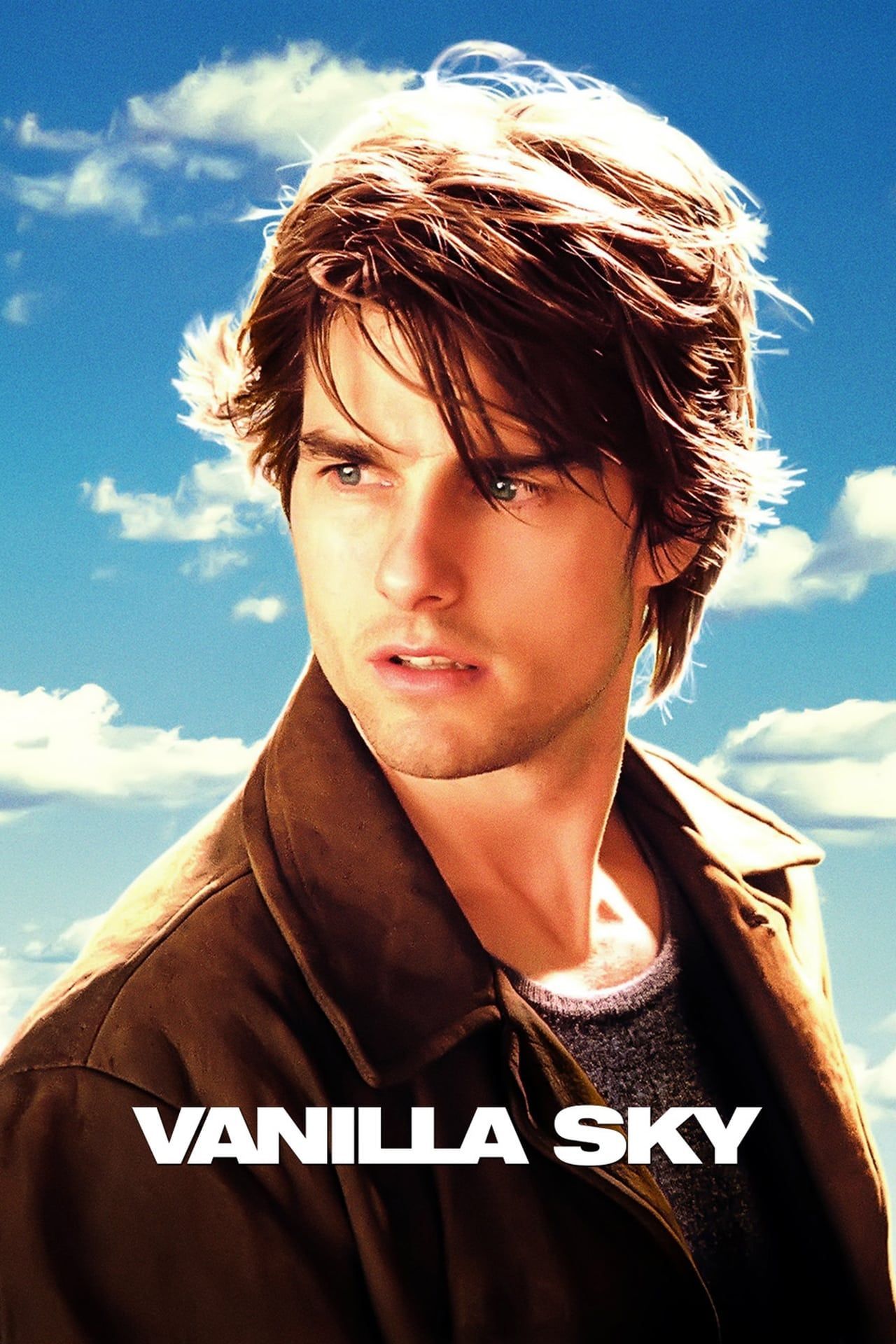
Vanilla Sky
- Release Date
- December 14, 2001
- Runtime
- 136
7 ‘Enter the Void’ (2009)
Directed by Gaspar Noé
“You know what death is? It’s life’s ultimate trip.” This psychedelic, visually striking art movie centers on Oscar (Nathaniel Brown), a young drug dealer living in Tokyo, who is killed in a police raid but experiences an out-of-body journey through the city. Gaspar Noé‘s camera follows Oscar’s spirit as it drifts over the neon-lit streets, reliving memories and observing the lives of those he left behind.
This journey through life, death, and reincarnation unfolds in a trippy, hypnotic style, typified by the movie’s famous (and endlessly imitated) title sequence. The visuals call to mind many neon-lit sci-fi classics, including Blade Runner and Ghost in the Shell. Similarly, the idea of a still-living but disembodied character also has parallels with sci-fi, like a consciousness being given life outside its physical body. Once again, this a provocative and unique movie that will either be brilliant and bold or confusing and annoying, depending on the viewer.
6 ‘Synecdoche, New York’ (2008)
Directed by Charlie Kaufman
“There are nearly thirteen million people in the world. None of those people is an extra.” Synecdoche, New York is the feature debut by writer-director Charlie Kaufman, one of the reigning kings of the quirky and surreal. Plot-wise, it focuses on theater director Caden Cotard (Philip Seymour Hoffman), who creates an all-encompassing theatrical production in a massive warehouse. His life becomes intertwined with his art as he builds a replica of New York City and casts actors to play people from his life, including himself.
The movie is rich in symbolism and dense with ideas, referencing everything from Jungian psychology to the work of Marcel Proust and Franz Kafka. The blurring of the boundary between reality and fiction goes so far as to begin feeling fantastical or like something out of alternate-reality sci-fi. On top of all this wackiness, Synecdoche, New York is actually emotionally sophisticated, functioning as a character study and intimate drama.
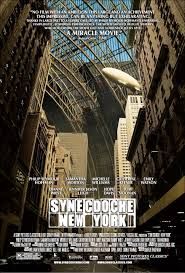
Synecdoche, New York
- Release Date
- October 24, 2008
- Runtime
- 124 minutes
- Writers
- Charlie Kaufman
5 ‘The Fall’ (2006)
Directed by Tarsem Singh
“I can’t finish my story without you.” The Fall follows bedridden stuntman Roy (Lee Pace) as he tells a remarkable story to a young immigrant girl, Alexandria (Catinca Untaru), whom he befriends in the hospital. As Roy weaves an epic tale of heroes, villains, and revenge, Alexandria’s imagination brings the story to life with vivid, surreal imagery.
A weird movie that won’t please everyone,
The Fall
has a small coterie of devoted fans for a reason.
Though The Fall is more of a fantasy, its surreal storytelling, visually rich settings, and dreamlike narrative feel akin to sci-fi. This quality is amplified by the ambiguity between truth and metaphor, facts and embellishment. In the second half, director Tarsem Singh (Immortals, Self/less) manages a graceful tonal shift, with the story growing darker as Roy’s despair seeps into the narrative and Alexandria tries to save both his characters and the man himself. Again, this is a weird movie that won’t please everyone, but The Fall has a small coterie of devoted fans for a reason.
4 ‘Mulholland Drive’ (2001)
Directed by David Lynch
“It’ll be just like in the movies. Pretending to be somebody else.” Synecdoche, New York is weird, but it’s got nothing on this surreal, nightmarish masterpiece from the always offbeat David Lynch. Mulholland Drive begins with Betty (Naomi Watts), an aspiring actress, arriving in Los Angeles and meeting the amnesiac Rita (Laura Harring). As they piece together Rita’s forgotten life, they fall deeper into a web of dreamlike scenes, bizarre encounters, and dark secrets, suggesting a sinister world where nothing is as it seems.
This movie is truly a mystery wrapped in an enigma, with even its most ardent fans unsure of what it all means. The fractured memories, MacGuffins, mysterious boxes, reality-bending, and nonlinear structure all very much rhyme with the sci-fi genre, but the movie never fully tips over into that territory. In this regard, Mulholland Drive has earned its classic status, continuing to captivate viewers with its labyrinthine depths.
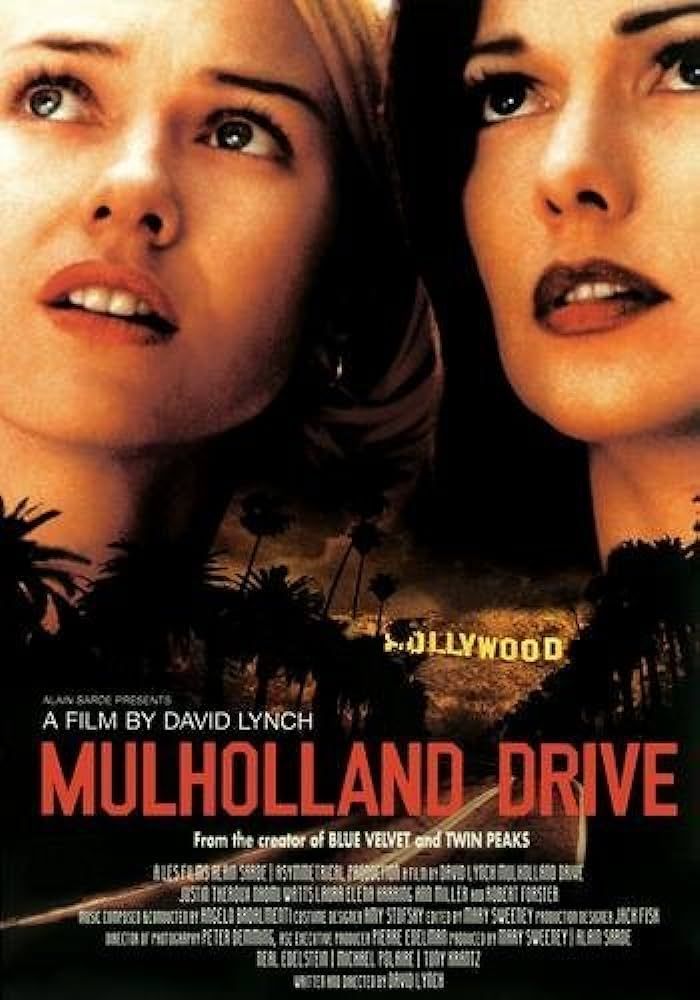
- Release Date
- June 6, 2001
- Runtime
- 147 minutes
- Writers
- David Lynch
3 ‘Children of Men’ (2006)
Directed by Alfonso Cuarón
“Even if they discovered the cure for infertility, it doesn’t matter. Too late.” Another dystopian gem, Children of Men imagines a dystopian future where humanity has become infertile, and society is on the brink of collapse. Theo (Clive Owen), a former activist, becomes the unlikely guardian of Kee (Clare-Hope Ashitey), the first pregnant woman in eighteen years, and must protect her as they navigate a lawless, chaotic world.
The movie is set in 2027 but downplays the futuristic elements, with little advanced technology and a world more or less like ours, just further along on the road to destruction. Indeed, Children of Men‘s chilling portrayal of societal breakdown feels more like an alternate version of the present than the glimmering visions of Blade Runner or Dune. This cinematic triumph of the oughts is a social drama and action thriller disguised as apocalyptic science-fiction. The grit, realism, religious iconography, and political dimensions elevate it over similar, more middling films.
2 ‘V for Vendetta’ (2005)
Directed by James McTeigue
“Remember, remember the fifth of November.” V for Vendetta is another movie set in a dystopian future, but it stands out from the crowd with its retro-futuristic aesthetic and, like Children of Men, a distinct lack of hyper-advanced tech. Instead, it’s a political action movie focusing on Evey (Natalie Portman), a young woman swept up in the cause of masked vigilante V (Hugo Weaving). Together, they attempt to resist the totalitarian government that has seized control of the UK.
The film bursts at the seams with creative writing, compelling performances, and memorable symbolism, drawing heavily on real-world politics and history. Despite meeting the loose definition of sci-fi, V for Vendetta winds up feeling like something very different. The themes transcend genre boundaries, crafting a powerful commentary on liberty and justice that continues to resonate, mostly thanks to the stellar foundation provided by Alan Moore‘s classic graphic novel.
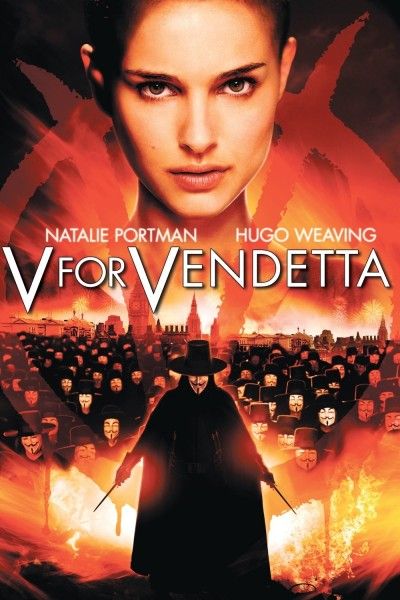
V For Vendetta
- Release Date
- February 23, 2006
- Runtime
- 132
1 ‘Eternal Sunshine of the Spotless Mind’ (2004)
Directed by Michel Gondry
“Meet me in Montauk.” When it comes to the very best sci-fi movies that don’t really feel like sci-fi movies, it’s hard to top Eternal Sunshine of the Spotless Mind, a zany blend of speculative science and relationship drama. It revolves around Joel (Jim Carrey) and Clementine (Kate Winslet), a couple who decide to erase each other from their memories after a painful breakup. As Joel undergoes the procedure, he re-experiences the highs and lows of their relationship, ultimately realizing he doesn’t want to lose the memories of their love.
In a different director’s hands, this might have been hard sci-fi stuff, diving deep into the mechanics of the memory erasure procedure. Instead, Michel Gondry treats it as a metaphor for heartbreak and the lingering impact of relationships. In the process, he turns the movie into way more than the sum of its parts: a quirky classic of 2000s cinema that remains highly regarded as a masterpiece of thought-provoking cinema.
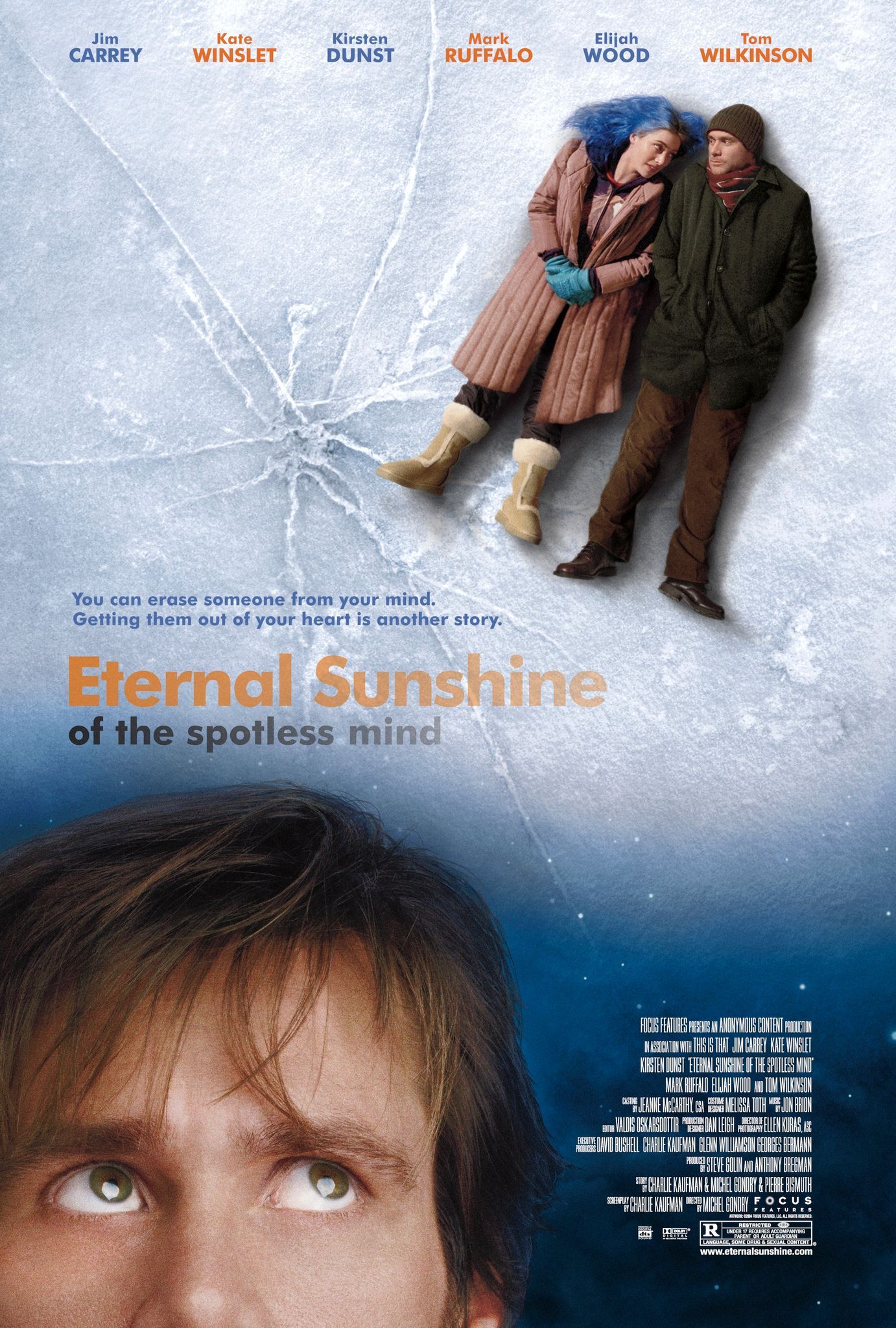
- Release Date
- March 19, 2004
- Runtime
- 108 minutes
- Writers
- Charlie Kaufman
[ad_2]
Source link

